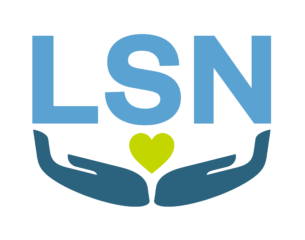Orientation
The first few weeks of the fellowship are dedicated to an extensive full time orientation which introduces the fellows to the organization and training program. Orientation provides an overview of services offered by CAPS and the skills required to perform these services. Some aspects of the orientation are designed to help fellows become more aware of themselves as they make the transition into the fellow role and phase of training. The experiences, goals and training strategies of the fellowship program are discussed and fellows define their own personal goals. Other activities are designed to help the fellows get to know the agency, the staff and to become part of the CAPS organization. These sessions involve interactions with all staff, trainees, and key campus agencies and colleagues.
Supervision
Individual Supervision
Each fellow receives two hours of individual supervision per week from two different licensed clinical social workers. Individual supervisors are initially assigned by the training committee with the input of the fellows. When possible, fellows’ will have one supervisor for the full year and two others for half of the year. Video and audio recordings are used as a tool in supervision.
Triage Supervision
Fellows participate on a triage team with increasing levels of responsibility, autonomy and independence through the year and as their competence and confidence develops. Fellows are on a triage team with three staff members. In addition to the triage team members, Clinical Coordinator and Associate and Clinical Director are available to provide immediate assistance and consultation, as needed. In addition, fellows as a group will participate in an hour per week of additional supervision of triage with two staff supervisors.
Group Case Conference
Fellows participate in a one-hour weekly group case conference. The facilitator(s) of the CAPS groups program provide this supervision, and other staff members may attend the case conference as well. The case conference is designed to address developmental stages of the group process through the use of articles and case examples. In addition to group case conference, fellows will receive supervision from staff co-facilitators. When fellows participate in the Road to Resilience Program, they will participate in a 30-minute weekly supervision group.
Referral Coordination Supervision
Fellows will meet weekly with two staff members for 30 minutes per week to discuss referral coordination cases and to participate in systemic evaluation of referral coordination services.
Fellow Team
Fellows meet weekly with one or more members of Training Commitee. This meeting will include time for discussion of cases and of socio-cultural issues that impact students. It is also a space where fellows can check in about how they are doing and self-care. Finally, this may be a time where expectations of the center are communicated, and where feedback about the program can be given.
Didactic Seminar
Fellows and pre-doctoral psychology interns meet weekly for one hour with various staff members who have expertise on the designated topics. The hour provides in depth discussion of the topic in terms of the trainees’ development and clinical experiences. Seminar topics include multicultural humility, aspects of therapy provision, ethics, specific populations, concerns prevalent in a college population, and professional identity development.
Staff Professional Development Activities
Fellows have the opportunity to participate in continuing education activities designed for our staff. Some examples from past years include treating anxiety disorders, a conference on PTSD treatment, autism spectrum disorder, interpersonal violence and sexual assault, and ethics in a campus university center.
Fellows will also have the opportunity to participate in professional development trainings provided by UNC-CH, such as:
- Green Zone training for faculty and staff wanting to learn more about the military affiliated student experience.
- Safe Zone training to create a network of allies trained to address sexual orientation, gender identity and gender expression
- Haven Training is a three-hour training for students, faculty, and staff members at UNC who want to learn skills for supporting survivors of sexual violence, interpersonal (relationship) violence, and stalking. The training also provides information about resources available to support survivors on campus and in the community.
Staff Meeting
CAPS staff meets for one and a half hours weekly to discuss administrative and professional issues relevant to the functioning of CAPS. Through observation of administrative functioning and participation in discussion of current administrative issues, fellows have the opportunity to develop a sense of how they interact with organizational structure. There are approximately two staff meeting per month that are for senior staff only, and not attended by fellows.
Move on to STRUCTURE OF THE PROGRAM

